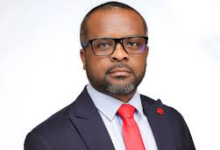Conflict resolution: a Ghanaian perspective in the context of Africa

The name Zongo is often been on the news for negative and bad reasons. Hence the reason for bringing this to the public domain to at least bring to the attention of the world, especially the Ghanaian community, some of the good things that are coming out of the Zongos, lately. This is meant, hopefully, to inspire the younger generations of the Zongo Youth to aspire for greater heights in all endeavors and fields.
I wish to thank the management and editors of The Ghanaian Times for their genuine effort in promoting and championing good causes anytime they see one. One may never know the good that may lead him/her to the highest place in Paradise and it may come as a result of just one or two efforts to inspire and motivate a group of people to do good. As a community deep-rooted in faith and tradition, Ghanaians believe in the Heaven and Hell, and everyone must prepare some good for the after-life.
Growing up in the Zongos, one could only hear leading professors, academics, politicians, very resourceful people around the World, getting golden opportunities to make a mark at the World’s famous, oldest, and highly privileged institution of learning, the University of Oxford, United Kingdom.
A typical zongo boy hardly takes a courageous move of responding to a “Call for Abstract and academic paper presentation” at the Oxford Symposium but in humility, daring to confront any progressive challenge pushed me to try my luck, which turned positive, by the grace of the Almighty.
I have, thus, presented my second research paper on Friday, 21st March 2025 at the Oxford Symposium on Religious Studies, the University of Oxford. What is most encouraging for me is the opportunity afforded me by the Symposium organisers to present another paper, insha Allah, at the July 2025 symposium.
I was inspired to write on “Conflict Resolution; a Ghanaian Perspective in the Context of Africa”, for the following reasons;
1. Leading up to the 2024 general elections in Ghana, foreign dignitaries expressed confidence in Ghanaians to go through the elections peacefully and successfully due to our past experiences. This is particularly based on the role that the National Peace Council of Ghana plays in the socioeconomic development of Ghana and perhaps the ability of the Peace Council in maintaining the fabric of the Ghanaian society regardless.
2. Soon after the 2020 general elections, a number of African countries visited the National Peace Council of Ghana to learn about the works of the council and how it manages conflicts and crises in Ghana, before, during and after elections.
These, therefore, caused me to think critically on how most people living outside Ghana perceive Ghanaians or more broadly, the works of the National Peace Council and other Ghanaian actors in the promotion of peace and preventing conflicts in Ghana.
Key aspects of the paper on Conflict Resolution; a Ghanaian Perspective in the Context of Africa, includes;
Conflict is an intrinsic aspect of human interaction, and its successful resolution is crucial for fostering harmonious societies.
The African continent, with its vast cultural diversity, presents a unique tapestry of conflict resolution practices that have been instrumental in upholding peace and unity.
In Africa, diversity is not merely a superficial characteristic but an intrinsic part of the continent’s identity. From varied linguistic traditions to diverse cultural practices, the mosaic of African societies reflects the beauty of human differences.
Ghana, with a population of about 33 million people, is divided into some 75 ethnic groups, speaking over 80 languages.
Ghana has a unique perspective on conflict resolution, rooted in its traditional practices and cultural values, like many other African countries.
Ghanaian culture is deeply rooted in the principles of communal living and the value of maintaining harmony within the community.
In Ghanaian society, Conflict, rather than being perceived as a purely negative occurrence, is viewed as a natural part of human interactions and relationships.
Conflicts resolutions are regarded as communal responsibilities that demand collective efforts to address and resolve them. This perspective fosters an environment where conflicts are not feared but embraced as opportunities for growth, learning, and strengthening social bonds.
Within Ghanaian communities, the emphasis on communal responsibility means that when conflicts arise, they are not seen as isolated incidents affecting only the individuals involved. Instead, the entire community shares a sense of ownership over the conflict and the obligation to seek a resolution.
Central to Ghanaian conflict resolution practices are the respected elders, who play a pivotal role in mediating disputes and maintaining social order. These elders spam from religious, traditional and eminent members of the community including youth chiefs and queen mothers.
Ghanaian communities value the concept of reconciliation as an essential aspect of conflict resolution.
Traditional African conflict resolution mechanisms often emphasize restorative justice rather than punitive measures. The focus is on restoring harmony and balance within the community rather than merely punishing wrongdoers.
Another of the cornerstones of conflict resolution in Ghana is the use of Dialogue as a primary means of resolving disputes.
Traditional approaches have been adapted through the promotion of Alternative or Appropriate Dispute Resolution (ADR) mechanisms. This means the use of Mediation, Communal participation, Dialogue, Reconciliation and others continue to serve as guiding principles in addressing conflicts.
The Ghanaian government has recognised the enduring value of traditional conflict resolution mechanisms and their potential to complement the formal legal system.
Through proactive dialogue and preventive measures, Ghanaian communities strive to maintain lasting peace and social cohesion.
The future prospects and recommendations for maintaining the efficacy of traditional conflict resolution practices in Ghana and Africa revolve around 1. Continuous Research, 2. Inter-Generational Dialogue, 3. Strengthening Partnerships, 4. Formal Recognition and Support, 5. Promotion of Peace Education, 6. and Public Awareness and Advocacy.
The full paper with all the references would be published soon by the Oxford Symposia.
The writer is an Eminent Member and Chairman of the Finance and Fundraising Committee of the Greater Accra Regional Peace Council (GARPC), the National Peace Council of Ghana (NPC).Executive Secretary, The Tijjaniya Muslims Movement of Ghana (TMMG). ADR, Human Rights and Islamic Affairs Consultant.
BY ALHAJI KHUZAIMA MOHAMMED OSMAN




